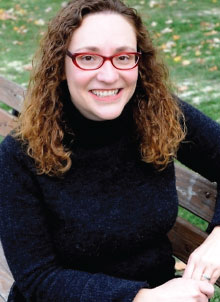AAPL Presidential Session to Examine Fictional Portrayals of Psychiatry
Abstract
People are more likely to see psychiatrists on film or television than in the real world, and popular culture shapes public opinion in a way that can increase stigma.
Frasier Crane of the television series “Frasier,” a fictional radio-advice psychiatrist (played by Kelsey Grammer) and his psychiatrist brother (David Hyde Pierce) were on TV weekly for 11 seasons through the 1990s and 2000s. An upcoming reboot has been announced. For people who have never met a psychiatrist, and even some who have, media portrayals may lead to misconceptions—and even more so within crime fiction. While Frasier wasn’t a forensic psychiatrist, his formal, upper-crust speech and behavior may have led the public to think of psychiatrists as stiff and judgmental.

Susan Hatters Friedman, M.D., is the immediate past president of the American Academy of Psychiatry and the Law.
To discuss the portrayals of psychiatrist criminals and murderers in the media and their impact on the public, the American Academy of Psychiatry and the Law (AAPL) will host a presidential session at this year’s Annual Meeting in San Francisco titled “Not Just Hannibal Lecter: Psychiatric Representations in Crime Fiction and Stigmatization.” Susan Hatters Friedman, M.D., immediate past president of AAPL, will lead the session. She is the editor of the APA Publishing book Family Murder.
Hatters Friedman will discuss the potential real-world impacts of negative portrayals of psychiatrists in crime fiction and the steps psychiatrists can take to address them. Psychiatrists have an important educational role in speaking with writers, authors’ groups, and media about real-world mental health issues to help correct misconceptions about psychiatry and its patients.
There are many types of psychiatrist and forensic psychiatrist characters in crime fiction; among the best known are Hannibal Lecter in the “Silence of the Lambs” series, Dr. Peter Teleborian in “The Girl With the Dragon Tattoo” series, and Professor Diomedes in “The Silent Patient.”
Irving Schneider, M.D., Glen Gabbard, M.D., and Krin Gabbard, M.D., have described categories and attributes of fictional psychiatrists in movies and literature. During this session, Hatters Friedman will discuss these representations.
The general public is more likely to see psychiatrists in film or on television than in the real world. Popular culture shapes public opinion, and there is a potential for greater stigmatization of the vulnerable populations whom psychiatrists serve. “Joker,” the highest grossing R-rated movie of all time, ended (spoiler alert) with the protagonist in a forensic psychiatric hospital. In a recent New Zealand study, participants were randomly assigned to watch either “Joker” or “Terminator: Dark Fate.” Viewing “Joker” was associated with an increase in scores on the scale of Prejudice Toward People With Mental Illness, indicating the very real potential impact of films on viewers.
Due to the frequency of such representations and how likely potential psychiatric patients—and potential jurors—are to have seen fictional psychiatrists on screens (big and small) compared with real-world psychiatrists, these portrayals cannot be dismissed as unimportant. More accurate portrayals of characters with mental illness may increase empathy and lessen stigma.
AAPL invites all psychiatrists with an interest in forensic psychiatry, general psychiatry, and representations of psychiatry in popular culture and their potential effects to attend this session. ■



